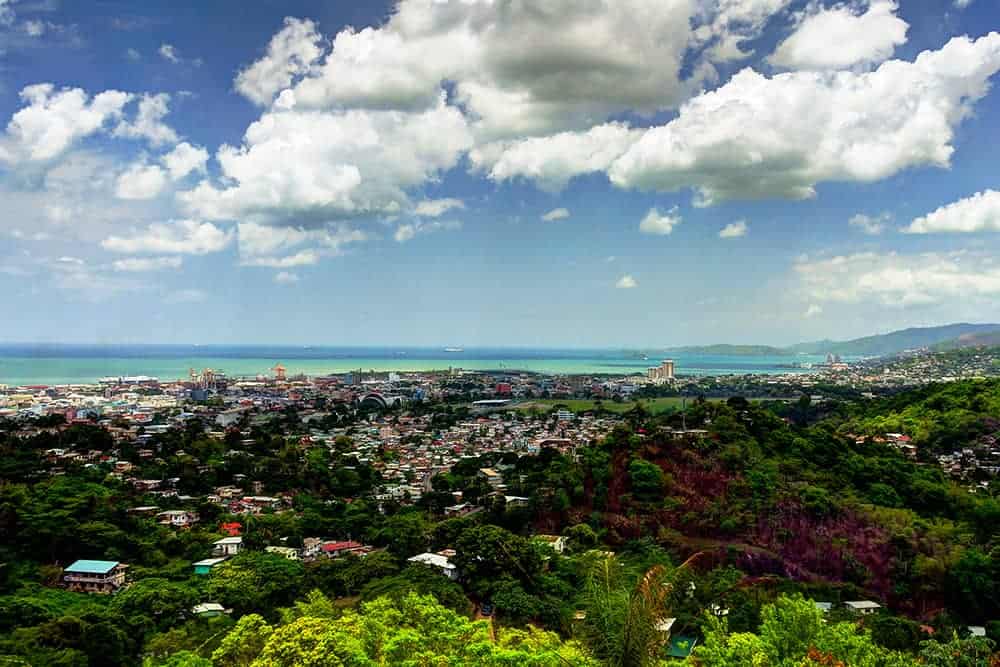Drone Laws in Trinidad and Tobago
Drone regulations and links for people flying drones in Trinidad and Tobago.
 Trinidad and Tobago Drone Regulations
Trinidad and Tobago Drone Regulations
According to Trinidad and Tobago’s national aviation authority, Trinidad and Tobago’s Civil Aviation Authority (CAA), flying a drone is legal in Trinidad and Tobago, but we recommend being aware of and compliant with the drone regulations listed below before doing so.
If you’d like to contact the CAA directly before you travel with any questions you might have, here is their contact information: civilav@cablenett.net / +1 868 625 9842

Why fly a drone in Trinidad? To get aerial shots of beautiful spots like this!
General Rules for Flying a Drone in Trinidad and Tobago
Based on our research and interpretation of the laws, here are the most important rules to know for flying a drone in Trinidad and Tobago.
- All drones weighing 750 grams (1.6 pounds) or more must be registered with the CAA. Learn more about registration requirements in this document issued by the CAA.
- All drone operations require a license, and there are various licenses required depending on the weight of the drone you’re flying and whether you’re flying for recreational or commercial purposes. Learn more about registration requirements in this document issued by the CAA.
- Drones may not be flown more than 120 meters (400 feet) above the ground, except drones weighing less than 750 grams (1.6 pounds). For drones weighing less than 750 grams (1.6 pounds), they may not be flown more than 30 meters (100 feet) above the ground.
- Drone pilots must maintain a direct visual line of sight with their drone while flying.
- Drones being operated for commercial purposes must carry drone liability insurance.
- Drones may not be flown over people without their permission.
- Drones may not be flown in No Fly Zones—see a list of No Fly Zones in Trinidad and Tobago here.
For more information on Trinidad and Tobago’s drone laws, see this page on the CAA’s website.
Know something we don’t about drone laws in Trinidad and Tobago? Send us an email at support@horizonap.com. We are not international aviation attorneys and do our best to keep this page up-to-date for drone pilots, but the reality is that given the pace of the small unmanned aerial system (sUAS) industry and how governments are responding, drone regulations in Trinidad and Tobago can change throughout the year, and those changes can be hard to track. If we missed something, please reach out to let us know.
Want to get a feel for the kind of footage you could get flying a drone in Trinidad and Tobago? Here you go:
 Trinidad and Tobago Drone Regulations
Trinidad and Tobago Drone Regulations